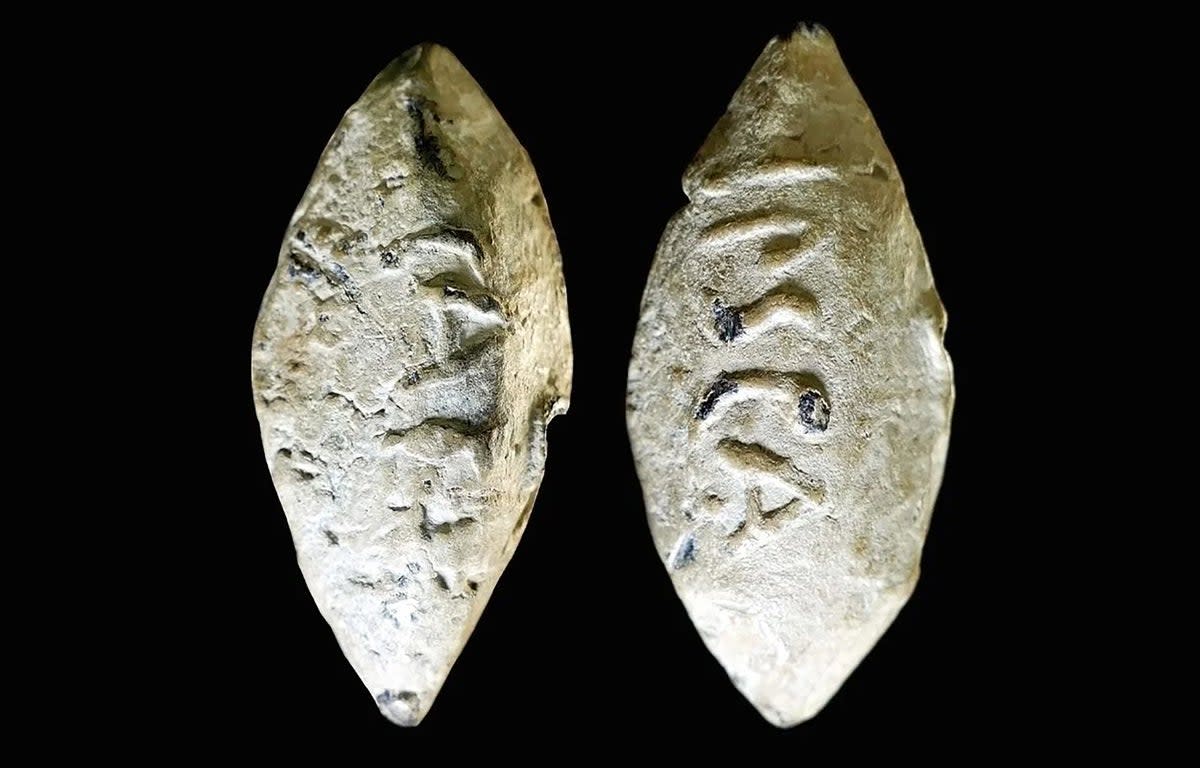Archaeologists find 2000-year-old ‘bullet’ with Roman dictator’s name on it

A 2000-year-old “bullet” found with a Roman dictator’s name on it was likely used as propaganda, according to archaeologists.
The lead projectile, inscribed with the name of Julius Caesar, was unearthed in Spain and could have been used with a slingshot by the general’s troops.
The artefact - known to specialists as a “glans inscripta” - measures 4.5 by 2 centimeters and weighs 71 grams and would have been made using a mold into which molten lead was poured.
On one side, an inscription reads “IPSCA” - likely Latin for an unknown Spanish town - while the other reads “CAES” for Ceasar.
Experts say the discovery could prove Indigenous Spaniards supported the cause of the dictator during his civil war in 49-45BC.

“In the 1st century BC, many inscribed glandes were made because they were very useful instruments for housing short, very specific messages,” study lead author Javier Moralejo Ordax told Live Science.
The message on the bullet was likely meant as political propaganda and encouragement for Caesar’s own troops, he added.
Caesar’s civil war engulfed Greece Egypt, Africa, Spain and the Balkans. The final offensive is known as the Battle of Munda, which took place in Andalusia, Spain.
Only one other bullet with Caesar’s name on it has been found in Spain before. It reads “CAE / ACIPE” — the Latin equivalent of “Suck it, Caesar” — most likely a message from Pompey’s troops to their enemy.

 Yahoo News
Yahoo News 
